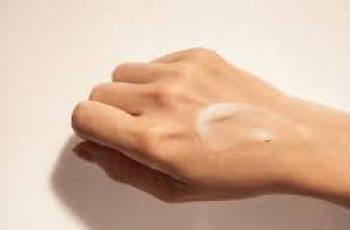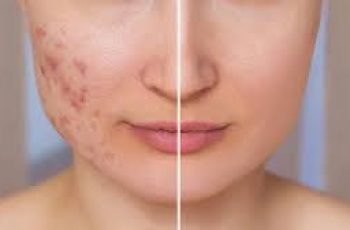
Probiotics in Skincare – Should I Use Them?
You’ve no doubt all seen a commercial on TV touting the benefits of drinking probiotics or using them in yogurt. Since they’ve been shown to help boost gut health, it’s no wonder they’re showing up in our skincare routines, products, and more. Yes, you heard it right: probiotic skincare.
Do they work? And are they good for overall healthy skin? Let’s explore a little further!
What are probiotics?
Probiotics are live bacteria (don’t worry, they’re good bacteria) and yeasts that support the overall health of your gut and digestive system. They’re commonly found in yogurt and supplements and help promote a balance of bacteria in your body. If bloating, stomach cramps, and other gut issues are common problems for you, probiotics could solve all of your worries!
Of course, these are all general probiotic benefits, and they’ve been found to work just as well on your skin! With their calming and balancing properties, probiotics can soothe skin concerns like blemishes, redness, and excess sebum, restoring your skin to its healthiest, balanced state.
What do probiotics do for your skin?
In short, topical treatments and products have a calming effect on the skin, similar to probiotics found in yogurt, drinks, and supplements, promoting the growth of good bacteria that allow skin cells to flourish and restore balance to the skin, both on the body and inside the face. Think of your skin as a city, home to millions of bacteria, all hard at work. These bacteria are called resident bacteria and are constantly present on your skin. Probiotics protect them and fight off any new “bad” bacteria that show up and try to disrupt the population.
Now this part gets a little more “scientific”. The ecosystem on your skin is made up of natural bacteria whose job is to protect the body. So you can imagine this is an important task, right? It’s also a difficult one, as this ecosystem is often disrupted by the climate and our daily lifestyle. That’s why more and more people are complaining about dry, sensitive, and generally stressed skin! By adding probiotics and prebiotics, you’re giving your skin a chance to rebuild a healthy ecosystem, which means you can restore the glow your skin deserves! You have to remember that even though your top layers of skin are technically at the end of their cycle and shedding, the overall appearance of your face depends on these layers staying hydrated and looking healthy.
Not only do probiotics help soothe and protect, they are also smart enough to work well with other ingredients in your skincare. Once they start penetrating the skin, you’ll also notice the creation of new ingredients such as hyaluronic acid, vitamins, and peptides. All of this is a powerful blend that can reduce signs of aging and hydrate the skin, leaving it looking radiant and glowing again. Here’s a quick overview of the benefits of skincare with probiotics.
Ensures skin stays well hydrated throughout the day
Combats dryness and prevents skin from feeling tight and uncomfortable
Strengthens skin against environmental influences
Restores skin’s pH levels
Now you have to admit that these are some pretty potent ingredients that deliver great results!
Should I use probiotics in my skincare?
Everyone can benefit from probiotics in their skincare routine, your skin faces multiple attackers and it’s not equipped to fend them off on its own! Using topical products containing probiotics, the good bacteria, can create a protective layer on your skin. However, some skin types can benefit from more frequent use.
Probiotics for Sensitive Skin
Sensitive skin usually means that the skin’s natural barrier is compromised, causing irritants and aggressors to trigger a reaction. Probiotics help strengthen the barrier and restore any areas that have been damaged! Your skin can actually heal on its own, but by adding probiotics to your skincare routine, you’ll find that your skin recovers faster and feels more comfortable. Any redness and flaky areas that may have previously appeared on your face will also be reduced and soothed.
Probiotics for Blemish-Prone Skin
If you have skin that is prone to blemishes, or even acne, you’ve probably tried a number of treatments and products to combat the problem. Some of you may have turned to your doctor in hopes that they can find the answer, which usually involves antibiotics. The only problem with using antibiotics to combat acne is that they kill all types of bacteria on your skin. Great for any “bad bacteria” that are making the problem worse, but not so great for the hard-working “good bacteria” that keep the surface of your skin balanced.
Yet, antibiotics are still commonly used to treat people with acne. That may be changing, however, as many skin care experts and dermatologists consider probiotics to be the holy grail for treating blemishes! Studies have found that skincare products containing a specific type of probiotic found in yogurt (Lactobacillus) can be great for boosting the growth of good bacteria and promoting skin regeneration by killing bacteria that cause further blemishes and spots. Some experts, such as Marie Drago, say that antibiotics take a backseat when it comes to treating acne, while probiotics can work faster, keeping your skin healthy and maintaining its natural balance.
Probiotics Calm Skin Redness
Similar to sensitive and acne-prone skin, if you find that redness is your main concern, using skincare products with probiotics will help soothe your skin and restore your skin barrier. Similar to the calming effects of probiotic yogurt on your gut and digestion, you can expect the same effects on your skin.
Other Things to Consider
Believe it or not, where you live can have an impact on your skin, and using a probiotic skincare routine will help you combat any issues you may have.
City Dwellers
There’s no denying that as a city dweller, you have a lot to live up to when it comes to your skin. Pollution releases a lot of aggressors that affect the health and overall well-being of your skin, irritating it and clogging it with bacteria and debris.
Probiotics can create a protective shield around your skin, preventing pollution, bacteria, etc. from affecting your skin and causing reactions, irritation, or blemishes.
At Home
In rural areas, pollution isn’t as much of an issue for everyone. Environmental aggressors like weather and tree pollen become the main factors for rashes and irritations, which admittedly aren’t as severe as in the city and usually subside faster.
Close to the Coast
Just like land dwellers, coastal dwellers are also subject to the effects of the elements. This isn’t an ideal situation for sensitive and dry skin, especially with sea breezes and winds filled with salty substances that can dry out your skin. Great for blowing away cobwebs and clearing your head, but terrible for moisturizing your skin. Using probiotics will work wonders. Imagine a sponge pudding that is overcooked, dry and unpalatable. When you dip it into thick cream, it completely transforms, acting like a probiotic-infused moisturizer that nourishes your tired, dry, uncomfortable skin.
So here you can learn more about probiotics and how they work in skincare products and make a great addition to your skincare routine. Especially if you have the above skin types or live in the above areas. While it may sound daunting to put bacteria on your skin that are supposed to be beneficial, remember that they are the “good guys” and there are millions of different strains or types of them that can help you in every way, from your gut to your radiant look!


